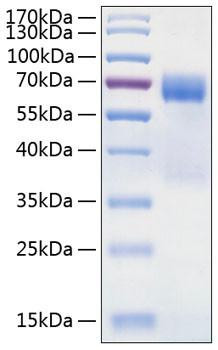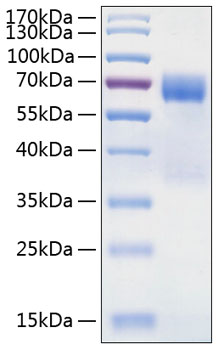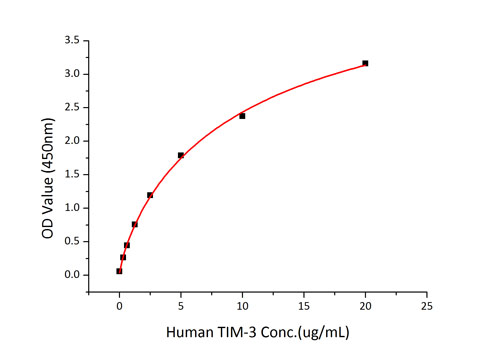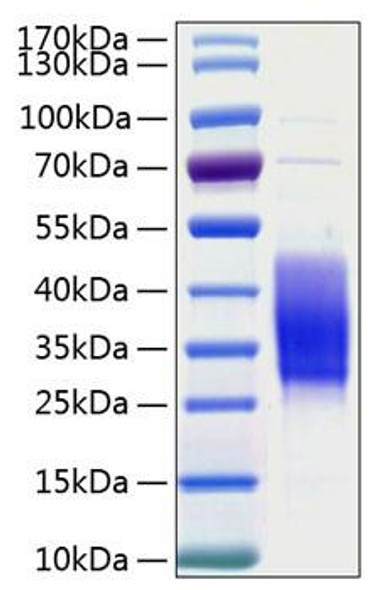HAVCR2 also known as TIM3(T cell immunoglobulin and mucin domain-3), is a 60 kDa member of the TIM family of immune regulating molecules. TIMs are type I transmembrane glycoproteins with one Ig-like V-type domain and a Ser/Thr-rich mucin stalk region. Mature human TIM-3 consists of a 181 amino acid (aa) extracellular domain (ECD), a 21 aa transmembrane segment, and a 78 aa cytoplasmic tail. An alternatively spliced isoform is truncated within the mucin-like stalk.TIM-3 is up‑regulated on several populations of activated myeloid cells (macrophage, monocyte, dendritic cell, microglia, mast cell) and T cells (Th1, CD8+, NK, Treg). Its binding to Galectin-9 induces a range of immunosuppressive functions which enhance immune tolerance and inhibit anti-tumor immunity . TIM-3 ligation attenuates CD8+ and Th1 cell responses and promotes the activity of Treg and myeloid derived suppressor cells. In addition, dendritic cell-expressed TIM-3 dampens inflammation by enabling the phagocytosis of apoptotic cells and the cross-presentation of apoptotic cell antigens. It also binds the alarmin HMGB1, thereby preventing the activation of TLRs in response to released tumor cell DNA. TIM-3 interactions with Galectin-9 can alternatively trigger immune stimulatory effects, such as the coactivation of NK cell cytotoxicity.








